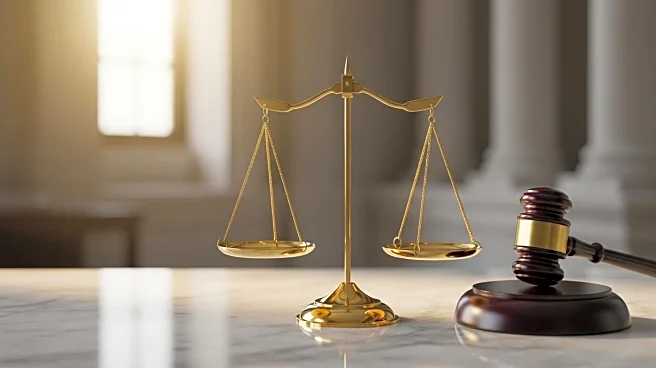What is the story about?
What's Happening?
The United States Supreme Court has decided to allow Federal Reserve governor Lisa Cook to remain on the central bank board into 2026, as it prepares to hear President Trump's appeal seeking her removal. The court will conduct oral arguments in January 2025, with a decision expected by June. This development follows an appeals court ruling that upheld a preliminary injunction, permitting Cook to continue her role while her lawsuit against Trump progresses. President Trump attempted to remove Cook over allegations of mortgage fraud, which she denies. Historically, no president has removed a Federal Reserve board member for cause, making this case unprecedented.
Why It's Important?
The Supreme Court's decision to let Lisa Cook remain on the Federal Reserve board is significant as it challenges the traditional deference given to presidential removal powers at independent federal agencies. This case could set a precedent for how such powers are exercised, potentially affecting the stability and independence of the Federal Reserve. The outcome may influence future interactions between the executive branch and independent agencies, impacting economic policy and governance. Stakeholders in the financial sector are closely monitoring the case, as it could affect the central bank's operations and decision-making processes.
What's Next?
The Supreme Court is scheduled to hear oral arguments in January 2025, with a ruling expected by the end of June. The Trump administration has expressed confidence in prevailing, anticipating a favorable outcome after presenting their case. The decision could lead to changes in how removal powers are interpreted and applied, affecting governance at independent agencies. Political leaders, legal experts, and financial institutions are likely to react to the court's decision, which could have implications for the balance of power between the presidency and federal agencies.
Beyond the Headlines
This case raises questions about the legal protections afforded to members of independent federal agencies and the extent of presidential authority. It could prompt discussions on the ethical and legal dimensions of executive power, particularly in relation to the Federal Reserve's independence. The case may also influence future legislative efforts to clarify or redefine the scope of presidential removal powers, potentially leading to long-term shifts in federal governance structures.

















